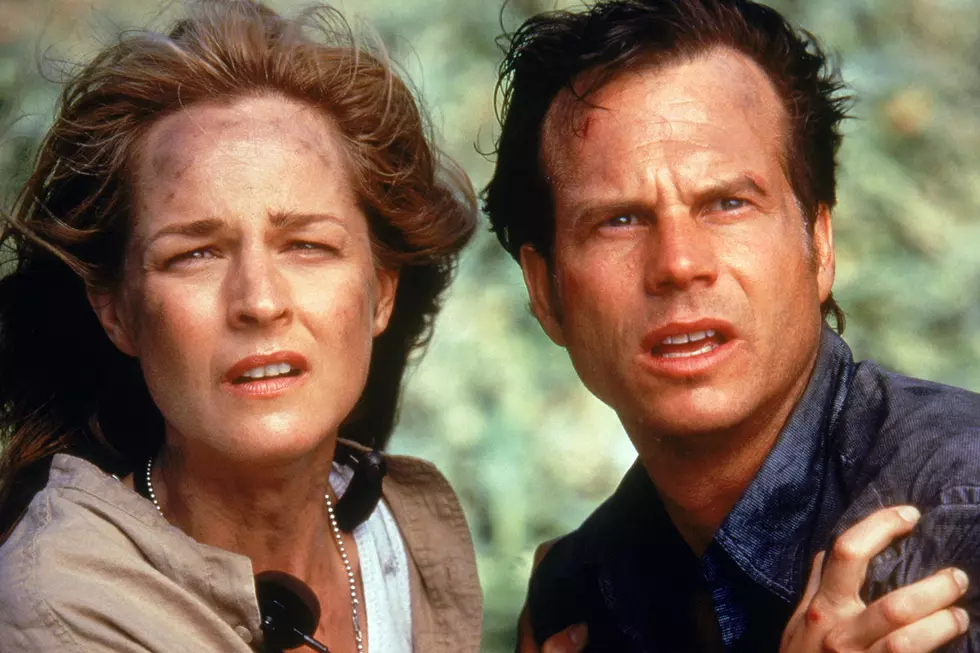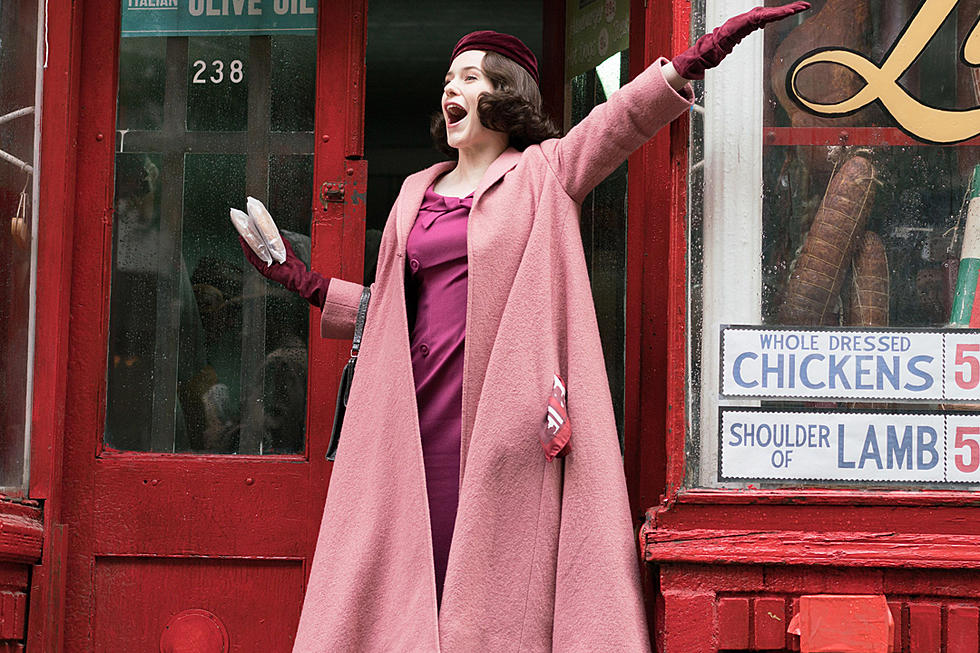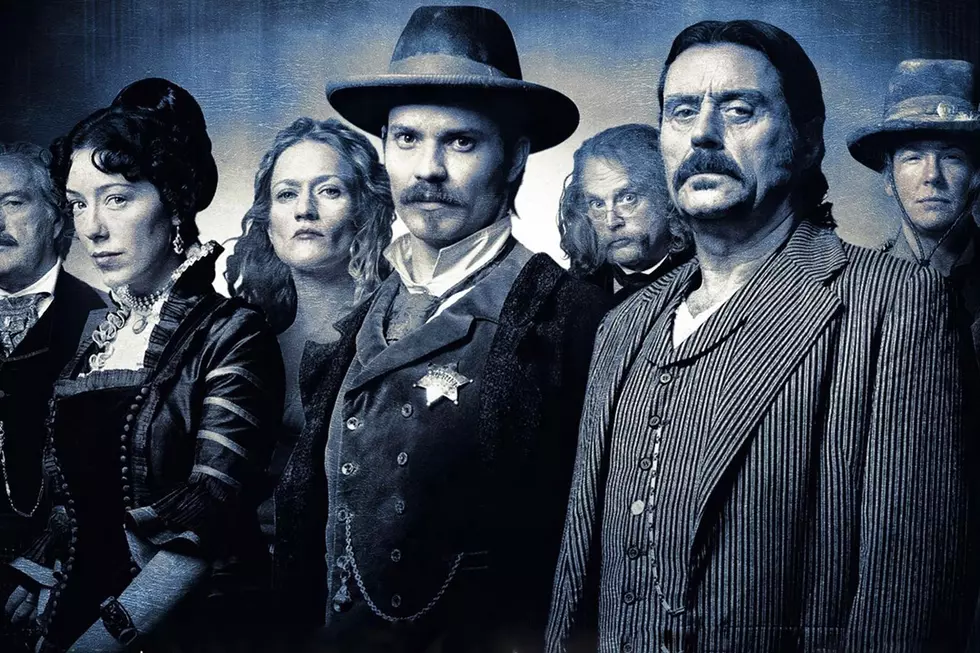
Reel Women: ‘The Sessions’ Has Some Naked Problems
'The Sessions' -- out now in limited release -- is based on the true story of poet, journalist and cripple Marc O'Brien, a man confined to an iron lung for most of his life who seeks out the help of a sex surrogate to experience the act for the first time. But for all its talk of body comfort and its cavalier attitude toward nudity, 'The Sessions' spends a lot of time obscuring Marc's body while giving us full access to that of his surrogate.
In a recent piece on Criticwire, our own Matt Singer addressed the double standard in 'The Sessions,' in which Helen Hunt's sex surrogate Cheryl is shown naked, full frontal (and, excuse me, but I noticed -- no merkin), in 90% of her scenes, while John Hawkes' Marc is consistently obscured by carefully placed sheets. We get a peek of suggestive pubic hair, but mostly Marc is covered in a film that seeks to expose. Director Ben Lewin had this to say about his decision to keep Marc's body covered:
"'My task was not to challenge the MPAA,' Lewin said, adding that any male frontal nudity, especially showing O’Brien in an aroused state, would guarantee a NC-17 rating... 'I was pretty aware of [the MPAA’s] attitude toward erect penises -- that we’d immediately be dumped into quasi-porno land,' Lewin said. 'And there was no point in showing John's penis if it wasn’t erect.'"
That seems like a fair argument, and Lewin is right in that the MPAA hates penises. I don't want to tell a filmmaker how they should have made their movie -- that's not my job. My job is to critically analyze the decisions they made, and so I believe that not showing Marc's nude body in any context was a mistake, particularly when -- during a rather poignant sequence -- Helen Hunt holds a full-length mirror to Hawkes' nude body so he can see what it looks like for the first time in 30 years. The camera cheats and we are not permitted to view his body, which keeps the scene from feeling as though it has any density. And during this scene, would Marc have needed to be erect anyway, when he and Cheryl are sharing an emotionally charged moment rather than a sexual one?
Perhaps the lack of Marc's nudity wouldn't feel as prominent if Cheryl's character weren't so cavalier about her own body -- that's not a complaint. One of the issues with the film is that, for its emotionally weighty content, it often feels too breezy, concerned with moving through Marc's story rather briskly. Cheryl never feels like a fully-formed character because this is Marc's movie, so we see just enough of Cheryl's personal life without really digging into what makes her this "saint," as her husband calls her. But the one thing that stands out is the way that Cheryl is very comfortable with her own skin, and her casual attitude toward nudity is infectious. She's trying to show Marc that nudity isn't a big deal or anything to be afraid of -- it's simply human nature, and better yet, Cheryl never expresses this verbally, but every time her clothes come off, it's understood.
And while this is one of the film's biggest strengths, it's also one of the biggest problems: for having such a cavalier attitude toward anatomy, why is Marc consistently covered while Cheryl is almost always exposed? We remove the man from the iron lung just to place him under sheets. I don't think Ben Lewin is guilty of being a sexist, but I do think that by catering to the MPAA, he's a tiny cog in the mechanism of the great Hollywood sexism machine.
Women can be naked in film all the time and seeing them nude, full frontal, is no longer the titillating and voyeuristic prospect it once was. We've grown so accustomed to the female form that we hardly bat an eye when an actress tosses off her clothes -- and that's because we feel entitled. We've been spoiled by female nudity in media to the point where we now feel as though the promise of a naked woman is almost always implied. I'm not saying there are men throwing popcorn at screens when a woman doesn't disrobe, but when there is female nudity, we no longer appreciate it -- we simply believe we deserve it.
And this brings us to the biggest issue of all, and the one that is most closely entwined with the MPAA's unfair standards: we, as a society, claim ownership of the female body. Yes, the recent election proved that us ladies are no longer interested in having our bodies controlled by bureaucrats and we're going to support candidates who believe us capable of making our own decisions, but there still exists this prevalent societal thinking that women's bodies are not their own (unless we're on our periods, because then our bodies become our problem, right?). It's archaic, just like the MPAA, and it's why we see Helen Hunt completely nude no less than four times in 'The Sessions,' while John Hawkes' body is politely covered.
The MPAA actively wants to protect the bodies of men while exposed women can run in herds across the screen for all they care. I'm not against nudity, nor do I think either sex in need of protection, but what does it say on a social level when we are not allowed to view naked men (and by naked, I do mean penises)? It means that to people like those on the board of the MPAA, a man's body needs protection, while a woman's does not. And you need only browse most magazines, commercials, and television shows to see that women are routinely exposed and treated as objects while men are not. (Except for on HBO original series, but it's not TV!)
'The Sessions' is a lovely, heartwarming film, sure to earn Hawkes a best actor nod at the Academy Awards, and the kind of film that can really please a crowd -- it's sweet, but perhaps a little too trite given that it's a 90 minute film about a crippled polio survivor experiencing sex and genuine love for the first time in his life. I don't want to undermine the film's good qualities here, but it does unfortunately exist as proof of the double standard with nudity, and the way that Hollywood continues to cater to the MPAA, perpetuating this idea that women do not own their bodies and we somehow owe it to the general public to be naked.
But yes, other than all of that, it's a good movie.
More From ScreenCrush









